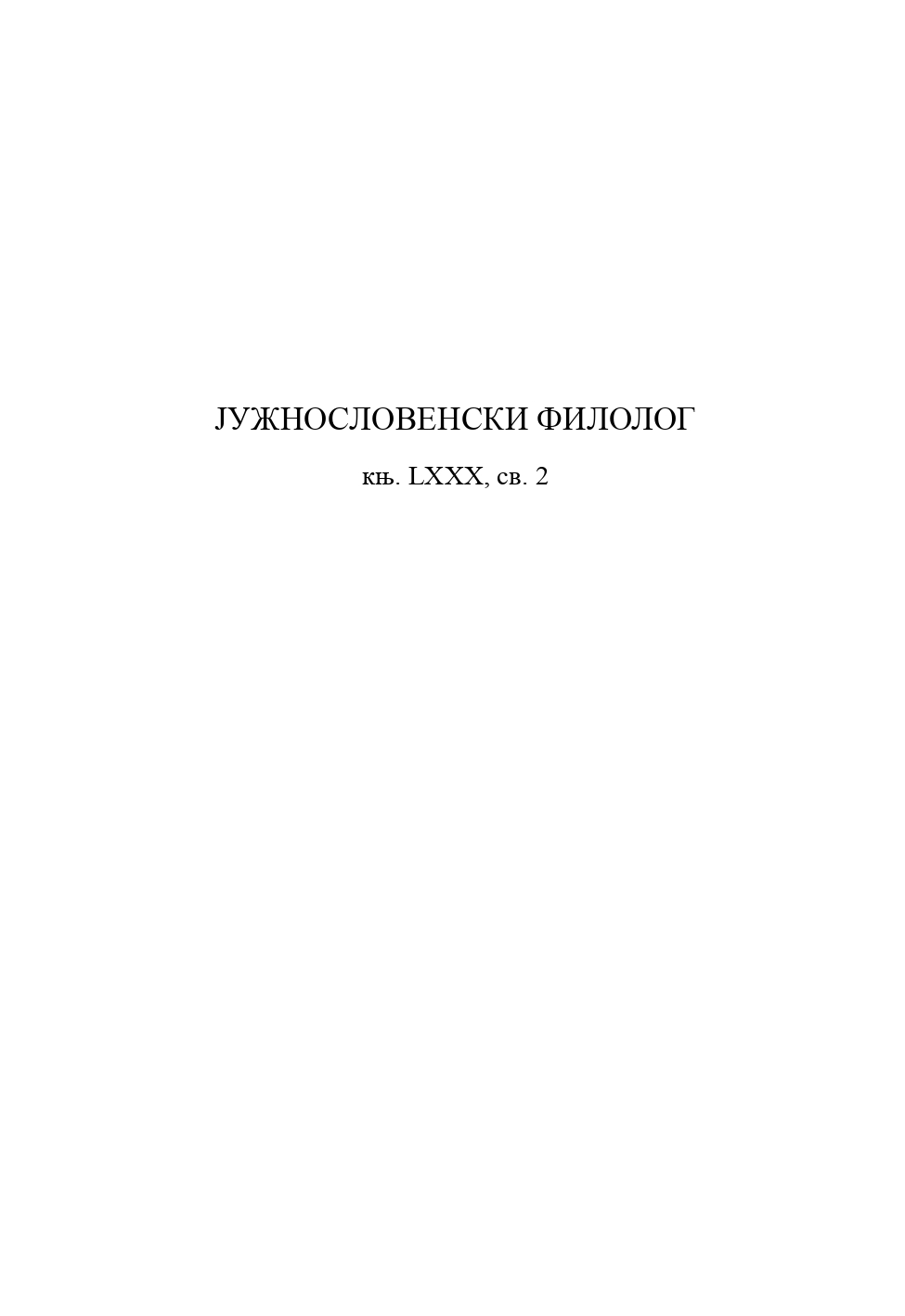МАЧ ДУХОВНИ ГАВРИЛА СТЕФАНОВИЋА ВЕНЦЛОВИЋА: УПОТРЕБА ТУРЦИЗАМА У ПРЕВОДИМА БИБЛИЈСКИХ ЦИТАТА
GAVRILO STEFANOVIĆ VENCLOVIĆ’S MAČ DUHOVNI: THE USE OF TURKISH LOANWORDS IN TRANSLATIONS OF BIBLICAL QUOTATIONS
Author(s): Sonja Đ. ManojlovićSubject(s): Language and Literature Studies, Theoretical Linguistics, Studies of Literature, Lexis, Historical Linguistics, Theory of Literature
Published by: Институт за српски језик Српске академије наука и уметности
Keywords: Turkish loanwords; Mač duhovni; Gavril Stefanović Venclović; translations of the Bible
Summary/Abstract: The paper presents the Turkish loanwords used in biblical quotations in Venclović’s translation of Mech duhovniy (Mač duhovni, Sword of the Spirit). By comparing them with the source in Church Slavonic (of the Russian redaction), Turkish loanwords that are used as a direct translation of a Church Slavonic word (zejtin, krevet, misirski, hazina, haramija, hrsuzin, čak) were extracted, as well as those that change the translated real object (korkuluk, minđuša, tabandže), those that are part of more or less broader explications (adet, badava, bašča, dumen, durma, đubre, zanat, inatiti se, kavga, kadar, somun, tane) and those that appear both as a translation of a certain CSl. word and within an explication (ama, bak(a)rni). In addition, a comparison was made with Vuk’s translation of the New Testament and Daničić’s translation of the Old Testament, to detect possible overlaps, since Turkish loanwords were used in both translations. In the places where a single Church Slavonic word is translated with a Turkish loanword, all other translations of the same CSl. word were found in the entire analyzed part of the manuscript, to show in which cases Venclović used a Turkish loanword, even though he had other vernacular words at his disposal. For 15 Turkish words, we can claim that Venclović had another equivalent in his lexical stock, and in 11 cases a purely vernacular word (as an equivalent for the Turkish words ama, đubre, zanat, inatiti se, kavga, korkuluk, krevet, minđuša, somun, hazina, čak), and in three instances a common word for vernacular and Church Slavonic (as an equivalent for the Turkish loanwords adet, zejtin, haramija). In one case, he only used the Church Slavonic word as an equivalent for the Turkish word hrsuzin.
Journal: Јужнословенски филолог
- Issue Year: 80/2024
- Issue No: 2
- Page Range: 63-85
- Page Count: 23
- Language: Serbian

